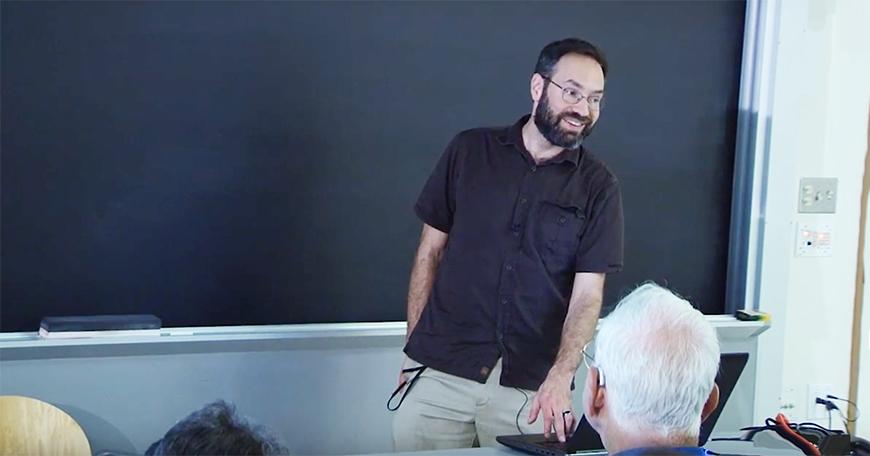
The Dynamics of Affect in Online Learning
The recent boom of online education platforms requires a more statistically robust characterization to improve software and guide classroom intervention based on detection of student learning and retention. On September 26, UPenn Professor Ryan Baker gave an xTalk to present his lab’s work in detecting the progress of student affect in the online learning process.
Baker began the talk by reviewing the highly variable levels of student boredom while using various learning software. He quoted data showing that “affect and engagement in online learning predict student outcomes, even several years later.” Therefore, his research is largely motivated by the need to detect student affect, for the sake of efficient and long-lasting learning.
Baker’s lab uses programs built into learning platforms to detect student affect and engagement. Baker defines affect as a set of learning states, ranging from engaged concentration, to frustration, to boredom. The detectors measure parameters such as use of hints, gaming, and pause after mistakes; these factors are analyzed, compared to log files, and ultimately offer prediction of learning outcome. While neural networks and machine learning algorithms certainly contribute, Baker explains that “automated log file detection of affect” is more predictive for limited datasets. Unlike previous efforts, these detectors are automated, analyze second by second, and are robustly validated. The last point is particularly critical for a detector’s ability to apply the same model to a wide variety of populations. Baker suggests these predictive models should focus on what matters most to student academic need. Anyone experienced in last-minute cramming would understand the difference between short and long-term retention. Focus on short-term learning goals may not translate to long-term retention. Furthermore, an intuitive prediction based on one affective state may not be valid: for example, students who do well may be in an off-task state. Likewise, a shorter interval of confusion and frustration often points to an effective learning state.
Therefore, understanding the progression between affective states is critical to individualized intervention and quantifying student risk, in terms of secondary education and achievement. Interestingly, Baker presents data suggesting that dynamics of affect predict college enrollment six years later and choice of STEM major.
The host did well to comment, that in modeling students and behavior, Professor Baker never forgets that we’re teaching real people. If models of dynamic affect truly predict learning and academic achievement, these detectors will optimize the power of online platforms by assessing learning based on carefully set parameters, rather than mere completion of online exercises. Empowerment of instructors, individualized learning, and long-term data collection are the ultimate goals.
As a long-time student, I personally recognize the potential of online learning. However, I have been skeptical of implementation and whether this learning is quantifiable and predictable. Baker’s research crucially harnesses the nuances of human learning to offer reliable and predictive assessment of student engagement and academic outcome.
Ryan Baker's Lecture Slides
Video of Ryan Baker's xTalk

Zoya Fan, MIT '19, is majoring in Biology and Global Studies

